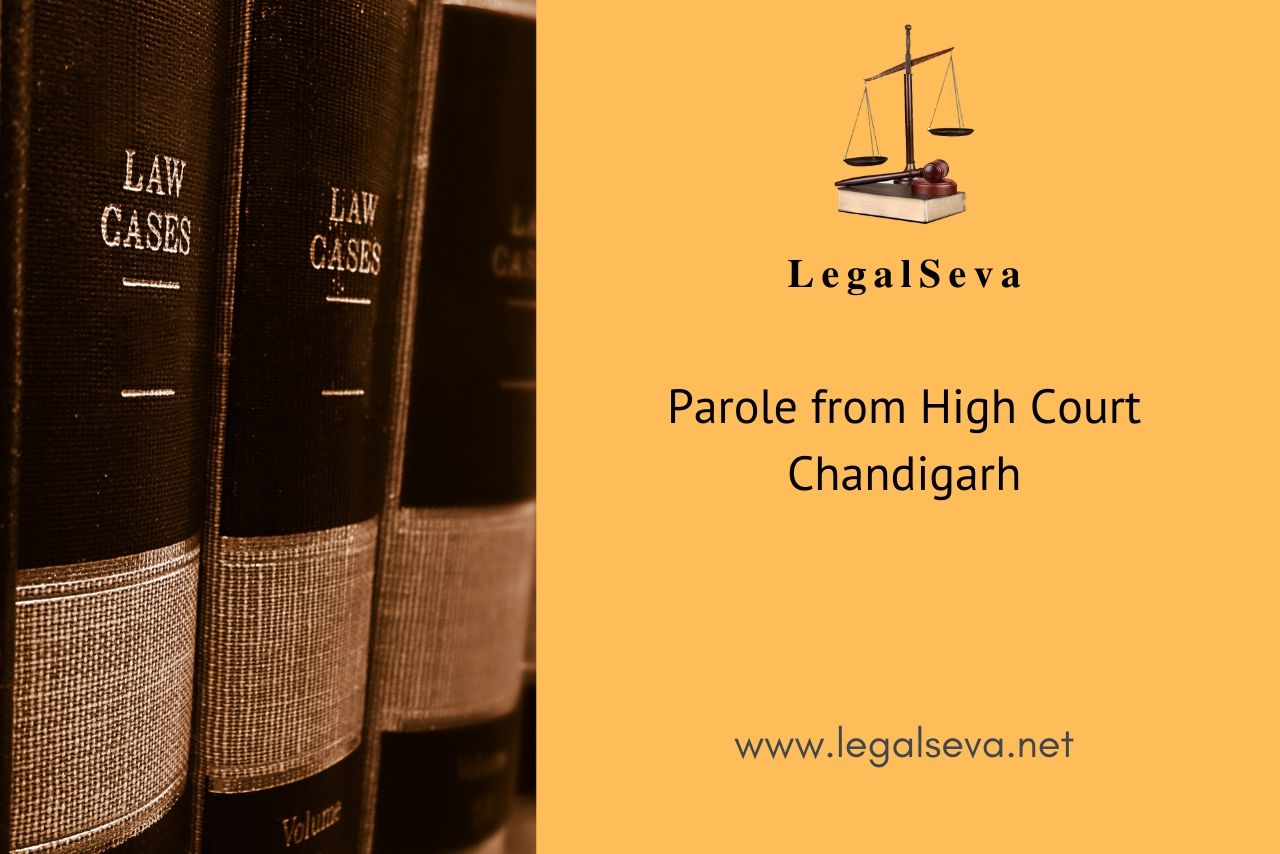Last Updated on June 10, 2024 by Satish Mishra
Before reading anything, let us understand Parole in most simple words. Parole is a temporary release of a prisoner for a special purpose or reason before the completion of the sentence in accordance with the relevant jail rules being followed.
Prisons Act of 1894, Section 5(A) speaks about Furlough and 5(B) talks about Parole. The entire rational behind these sections is reformative theory of penitence where the offenders can go back to life normally and these provisions help humanize the prison system as well. Apart from Jail Manuals, Model Prison Manual submitted by All India Jail Committee is widely being followed.
Difference between Parole and Furlough?
- Furlough matter of right but not Parole.
- Furlough granted periodically which is 14 days in a year can be extended based on reason whereas Parole on completion of 1/3rd sentence. At a time Parole of 30 days and total of 90 days in a year.
- Furlough is remission of sentence whereas Parole is suspension of sentence.
- No reasons to be indicated while release on Furlough but reasons for granting Parole.
- Furlough period counted as period in sentence but no for Parole. Even Furlough can be rejected in interest of justice.
Difference between Parole and Probation
- Probation is entirely a different concept where it is given on the threshold of a case only whereas Parole comes only in the last quarter of the sentence. But both are dependent on the promise of good behavior, if one party fails, then the other has to go to jail.
Difference between Parole and Bail
- Bail usually happens before the conviction and even if conviction has happened, you can get regular bail in Appeal only till its pendency and then finally either you are acquitted or jailed. And now once you are jailed after spending around 1/3rd of the time in Jail you apply for Parole with reason. Securities and Sureties can be asked in both the cases.
Parole is initially adopted from Military Law where the prisoner is released on promise of returning.
Criteria for Parole?
All sentences above 18 months are subject to release of parole once 1/3rd of the sentence is completed.
Concept of Bail and Parole are entirely different but surety and security has to be furnished on the asking of authorities or else it can be rejected.
Parole is rarely given in heinous crimes of Rape, against Child, Terrorism and crimes against state but at the discretion of authority it still can be given.
Reasons for Parole can be:
- Member of Family ill or sick.
- Wife pregnant or delivery of child is scheduled.
- Marriage in Family.
- Property or Land dispute.
- Death in family, to perform last rites and rituals.
- Mentally sick and suffering from deadly disease or ailment where quick medical treatment is desired.
Types of Parole- Regular and Custody Parole.
Regular- On the same reasons cited above. If the writ is dismissed by High Court Chandigarh, you may file it in Supreme Court, New Delhi via SLP.
Custody- Where an official is appointed to take you to the desired place and fulfill the obligation stated in application for fixed number of hours. After that you have to go back to the jail once again.
Judgments of Supreme Court, High Court and reports of various Jail Committee’s have helped Parole system evolve in India continuously. The Parole application has to be scrutinized in the interest of general public, whether it is dangerous or not to send the convict out for parole or not. What are the chances of him returning is another aspect and can anyone give surety for his presence.
Procedure of Getting a Parole:
- Jail inmate seeks for Parole in writing from Jail Authorities (Superintendent of Jail).
- SP, Jail asks for report from Police Station who made the arrest. The grounds mention in the Parole application can be asked for verification by Police Authorities of same region.
- SP, Jail then forwards it to Deputy Secretary (Home, General) State Government or IG, Prisons to decide on the Application.
- If Parole gets accepted end of matter or else you can file Writ Petition (Criminal) in Punjab and Haryana High Court at Chandigarh.
- You may write whatever in the period of parole desired but courts can tweak it and grant you days less or more based on your conduct in Jail and various other reports submitted before it.
Famous Judgments covering Parole in India;
- Sunil Fulchand Saha (Supreme Court) (2000) 3 SCC 409
- Gajanan Babulal vs. Maharashtra DIG Suptt. Prison, Bombay High Court Nagpur bench (Crl WP- 272 of 2012)
- Shakuntla Devi vs. Delhi by Delhi High Court (1996) 36 DRJ 545
- Inder Singh vs. State A.I.R. 1978 SC 1091
- Haryana vs.Mohinder Singh by SC
Famous cases of Parole being given and covered by Indian Media:
- Famous Jessical lall murder case, parole granted to Manu Sharma for Marriage, Distance education.
- Bibi Mohanty case, son of a DGP of Orissa for raping a German national jumped parole.
- Sanjay Dutt Parole crossed the limit of 90 days in a year.
- Saibanna vs. Haryana and Krishan vs Haryana where Parole granted were misused.
Currently, Parole/Furlough Guidelines of 2010 are being followed. If in case you jump your parole, you will be convicted under Section 224 of IPC, 1860. States can also have separate Prison rules while centre follows the Prison Act, 1894 and Prisoner Act, 1900.
In case of any query, dial 99888-17966 and just say LegalSeva or you may write to us at [email protected] . Do share your thoughts in comment section below.
Reference Links:
